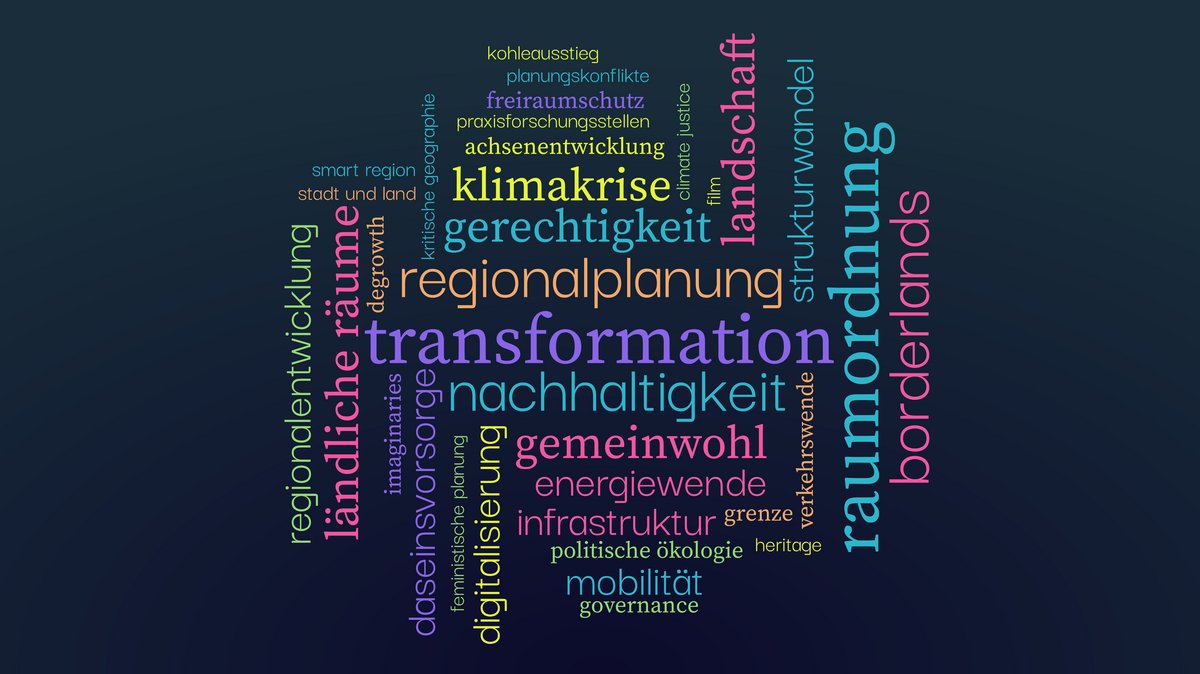
The Department of Regional Planning focuses in its research and teaching activities on the regional level of spatial development and spatial planning. It is concerned with both the theoretical and practical issues of regional planning, development and transformation. This includes issues of formal and informal institutions, governance, methods, instruments and procedures, questions of democracy and power, as well as the specific themes of regional spatial development (e.g. equality of living conditions, open space protection, settlement and infrastructure development, energy transition, digitalisation).
The guiding principle of research and teaching is a sustainable development, which is supplemented by other societal transformation objectives such as climate justice, social innovation capacity, post-growth or participation. Our focus on the regional scale allows us to address rural, suburban, urban and metropolitan areas as well as urban-rural relations and border regions.
The department works at the interface between different disciplines. This diversity is necessary in order to adequately understand phenomena of regional planning, development and transformation and to develop conceptual knowledge. The department combines approaches from political, cultural and social sciences as well as from human geography with planning perspectives. Concepts from different disciplines improve the possibility of generating and teaching knowledge relevant to planning science. At the same time, the aim is to develop solutions for complex problem situations in regional transformation processes, which requires the integration of scientific and practical knowledge.
The university location in Lusatia, in the German-Polish border region and in the Berlin-Brandenburg metropolitan region offers a variety of starting points for research on regional governance approaches and the role of spatial planning in transformation processes. In this sense, the department is open to cooperation of various kinds: for example, for visiting researchers or fellows, or by carrying out PhD and habilitation projects at the department.

